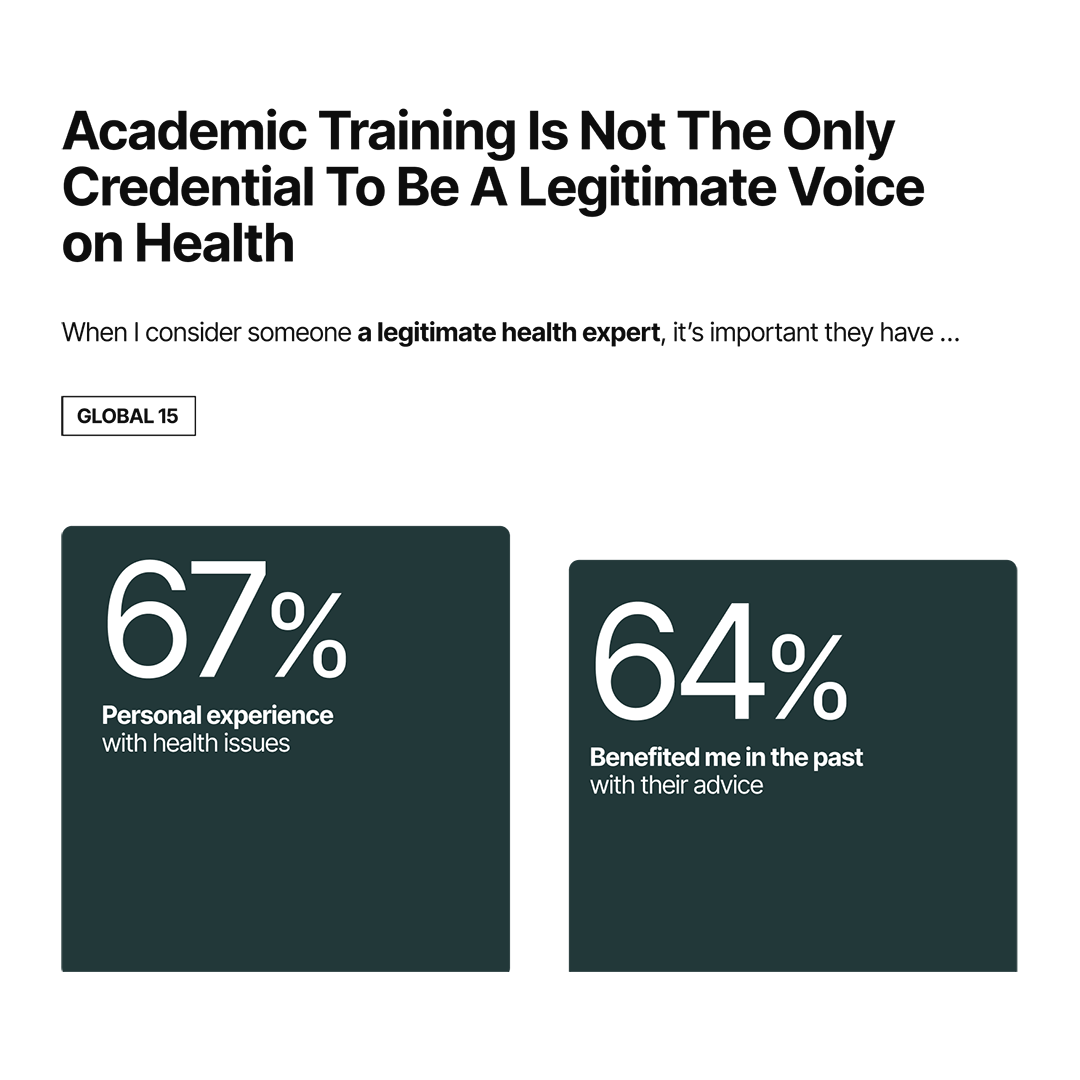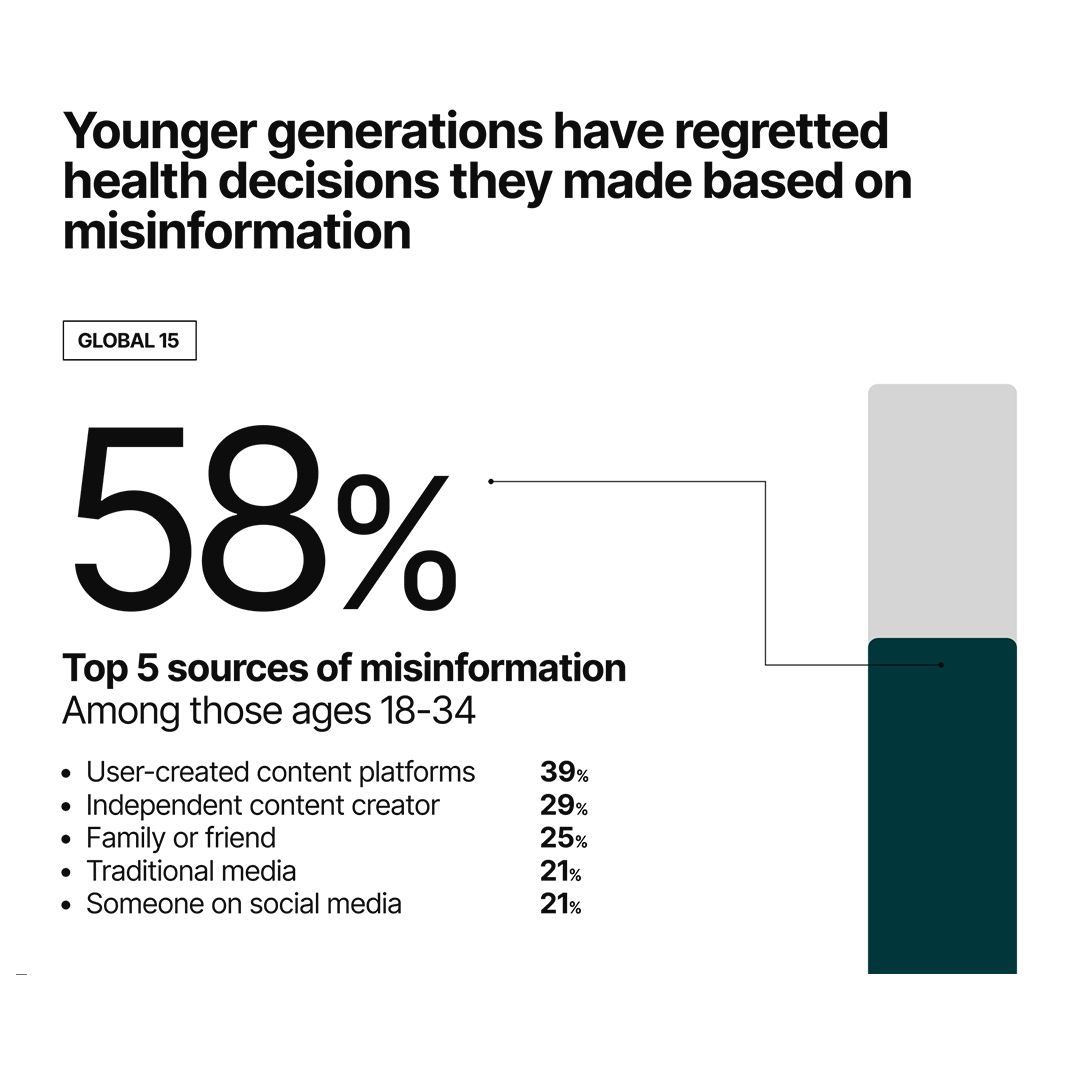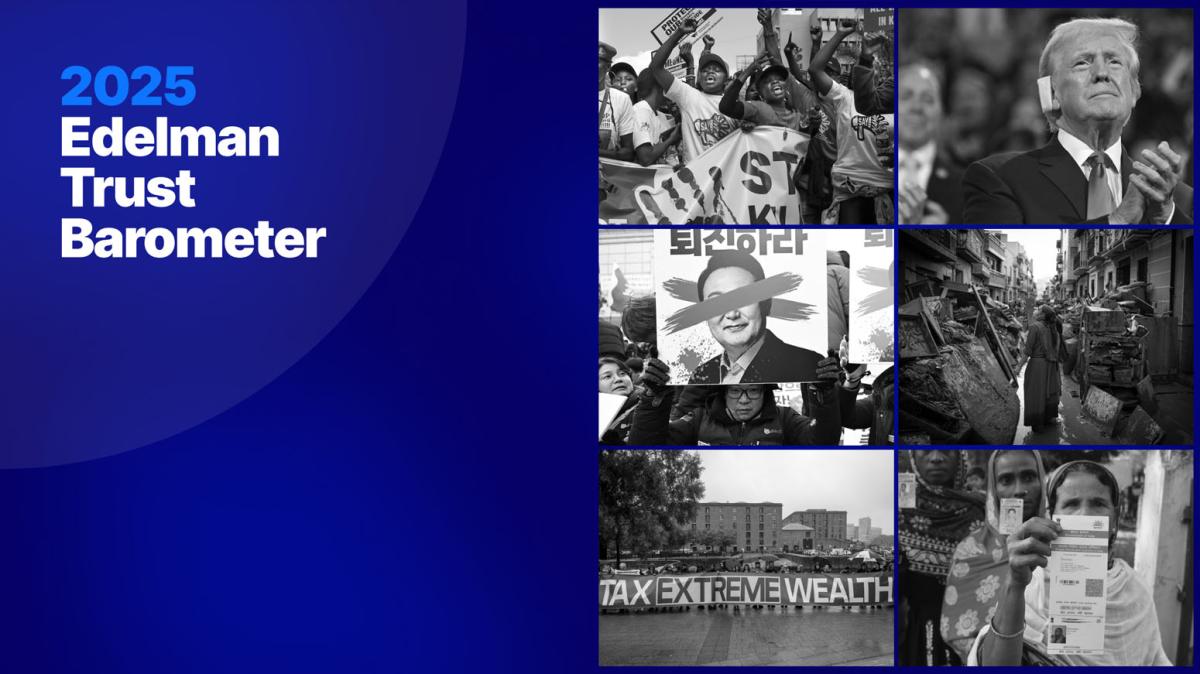- Global (EN)
- Africa (EN)
- Australia (EN)
- Belgium (EN)
- Brasil (PT)
- Canada (EN)
- Canada (FR)
- China (CN)
- France (FR)
- Germany (DE)
- Germany (EN)
- Hong Kong, China (EN)
- India (EN)
- Indonesia (EN)
- Ireland (EN)
- Italy (IT)
- Italy (EN)
- Japan (JP)
- Korea (KR)
- Latin America (ES)
- Malaysia (EN)
- Middle East (EN)
- Netherlands (EN)
- Spain (ES)
- UK (EN)
- Global (EN)
- Africa (EN)
- Australia (EN)
- Belgium (EN)
- Brasil (PT)
- Canada (EN)
- Canada (FR)
- China (CN)
- France (FR)
- Germany (DE)
- Germany (EN)
- Hong Kong, China (EN)
- India (EN)
- Indonesia (EN)
- Ireland (EN)
- Italy (IT)
- Italy (EN)
- Japan (JP)
- Korea (KR)
- Latin America (ES)
- Malaysia (EN)
- Middle East (EN)
- Netherlands (EN)
- Spain (ES)
- UK (EN)
.
Global health is experiencing a transformation of influence and trust
The 4th annual Edelman Trust Barometer Special Report: Trust and Health reveals a transformational shift happening between the public and those they trust with their health. Five years since a world-shaping pandemic, the report is being published at a time when dramatic changes in public health leadership and the emergence of long eradicated diseases are colliding with vastly different generational behaviors. No institution we study – business, government, media or NGOs – is trusted to address health needs and concerns, and the grievance we observed in the 25th annual Edelman Trust Barometer is seen in this report, with a majority in 9 of the countries surveyed saying institutions are actively undermining access to care.
The report observes a health ecosystem where trust and perceived legitimacy will lead to influence over people’s health decisions. With new voices of trust in health competing with doctors and the medical establishment, effective communication is where influence is won and lost – and it goes beyond medical expertise.
DOWNLOAD REPORT REQUEST A BRIEFING
The crisis of grievance is manifesting in public health
In 9 out of the 16 countries surveyed, a majority of respondents believe business, government, and/or NGOs are actively undermining access to quality care.


Legitimacy in healthcare is about more than academic credentials and training
While formal academic training is the most important credential when considering someone as a legitimate health expert, nearly two thirds say that personal experience with health issues and helpful prior advice qualify your expertise.
Misinformation driving health decision regrets
Not only are younger generations more susceptible to being influenced by people without formal medical training, nearly six in ten regret at least one health decision that they made based on health misinformation, which is most likely to come from user generated content, independent creators, or peers.

Explore the findings


How to win influence over science communications
1. Leverage both institutional and personal influence
Traditional scientific and medical authorities do not have a monopoly on influence over how individuals make decisions about their health. To guide health decisions, experts must navigate new credentials of legitimacy and speak more personally.
2. Prioritize both scientific and anecdotal evidence
To the public, personal experience of a health issue is just as compelling of a data point as a large-scale longitudinal study. Anecdote is not the enemy of science, but a conduit of its communication.
3. Engage in the youth health ecosystem
Young people around the world are consuming and creating health content at a stunning rate. Institutional voices need to amp up their frequency and be present in the right places to register in the conversation.
4. Activate trusted community networks
Providers are most trusted, but when people don’t get what they need, they turn to friends, family, and people with similar health issues. Institutions must embrace this fact and facilitate mutual connections and clear understanding.
Explore the findings
.
Top Findings
01
Fear rises in medical science becoming politicized
⟲
01
Heightening concern globally since 2022 (+7 points), with the biggest increases in Germany, South Korea, Japan, and the U.S.
02
Young people regularly engage with health content
⟲
02
Roughly two-thirds of 18-34-year-old respondents consume health media from its original source in major news outlets or sent to them on social media at least monthly – and they are the age group most likely to post health related news, personal stories, and opinions online at least monthly.
03
Youth health ecosystem evolves
⟲
03
Younger people are 2x likely than those who are 55+ to believe the average person who has done their research is just as knowledgeable as a doctor. Youth trust health providers, yet many admit to disregarding provider advice in favor of friends or family (45%) or social media (38%) within the past year.
.
Insights
The 4th annual Edelman Trust Barometer Special Report: Trust and Health was presented by Richard Edelman, CEO, Edelman; Courtney Gray Haupt, Global Health Co-Chair & U.S. Health Chair, Edelman; and Jennifer Hauser, Global Health Co-Chair, Edelman.
The presentation was followed by a moderated discussion led by Courtney Gray Haupt and featuring Caitlyn Giannini, Content Creator, Patient Advocate, and Global Health Creator Marketing Lead, Edelman; Dr. Celine Gounder, CBS News Medical Contributor, KFF Editor-at-Large for Public Health, and Clinical Associate Professor at NYU and Bellevue Hospital; and Magdalena Skipper, Editor in Chief, Nature.
Subscribe for our research and insights directly to your inbox:
Methodology: The 2025 Edelman Trust Barometer Special Report: Trust and Health is in its 4th year. The research was produced by the Edelman Trust Institute and consists of 25-minute online interviews conducted between March 4 and 14, 2025. Learn more >
16 | 16,000+ | ±1000 |
Effective communication drives influence in healthcare
Learn how your company can make a difference in people’s health.






